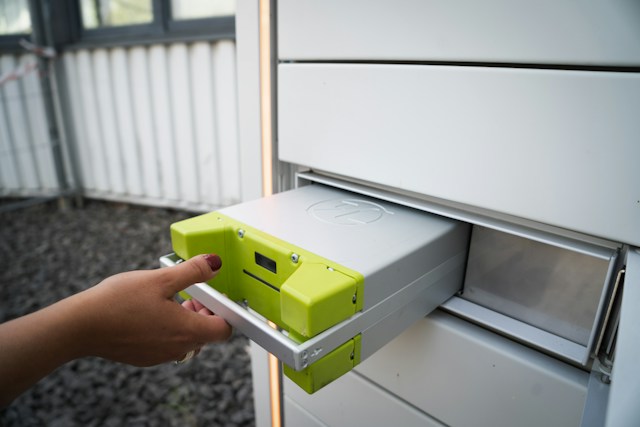In today’s fast-paced world, where unforeseen circumstances can disrupt our daily lives, ensuring a continuous power supply is more critical than ever. This holds especially true during emergencies when access to electricity can mean the difference between safety and chaos. In this article, we’ll talk about the world of emergency power and shed light on the vital role Uninterruptible Power Supply (UPS) systems play in disaster preparedness.
The Crucial Role of UPS in Disaster Preparedness
Ensuring Continuous Power Supply
During disasters such as hurricanes, earthquakes, or floods, the electricity grid can suffer significant damage. A UPS ensures that critical devices, like computers and medical equipment, remain operational, offering a lifeline during emergencies.
Protection Against Power Surges
UPS systems also protect devices from power surges, which can happen when the electricity supply is restored after an outage. These surges can damage electronics, making the UPS a valuable asset in disaster-prone areas.
Ensuring Medical Equipment Functionality
During emergencies, such as natural disasters or power grid failures, the availability of electricity becomes a critical factor for medical facilities. UPS systems play a vital role in ensuring the continuous functionality of life-saving medical equipment. From ventilators to diagnostic machines, the uninterrupted power supply becomes a lifeline for patients in critical conditions.
Preserving Data Integrity
In a technologically driven world, data is invaluable. Businesses and individuals heavily rely on electronic data for communication, record-keeping, and operations. A sudden power outage can result in data corruption or loss. UPS systems act as a safeguard, providing a grace period for proper shutdowns and preventing data damage that could occur during abrupt power interruptions.
Facilitating Communication Networks
Effective communication is essential during disasters. Communication networks, including cellular towers and emergency broadcast systems, require uninterrupted power to function. By ensuring that these systems remain operational, UPS systems contribute significantly to coordinating emergency response efforts, disseminating information, and maintaining public safety.
Supporting Home Healthcare
In scenarios where individuals depend on medical devices at home, such as oxygen concentrators or electrically powered medical beds, a power outage could pose life-threatening risks. UPS systems provide a reliable power source, allowing those with medical needs to continue receiving the necessary care at home during emergencies.
Preserving Food and Medication
For businesses and individuals relying on refrigeration for storing food and medication, a power outage can lead to spoilage and waste. UPS systems offer a temporary power source, preventing the loss of essential supplies. This is particularly crucial for hospitals, pharmacies, and households with medical dependencies.
Ensuring Security Systems Operability
Disasters can create situations where security becomes a heightened concern. Whether it’s a residential security system or critical infrastructure like surveillance cameras, UPS systems ensure the continuous operation of these security measures. This is essential for maintaining order and safety during and after emergencies.
Preventing Business Downtime
For businesses, downtime during emergencies can result in significant financial losses. UPS systems prevent abrupt shutdowns of servers, computers, and other critical equipment, allowing businesses to continue essential operations and minimise the economic impact of unforeseen events.
Facilitating Remote Work
In an era where remote work is increasingly prevalent, UPS systems enable individuals to continue working during power outages. This is particularly crucial during emergencies when communication and collaboration are essential for coordinating response efforts or maintaining business continuity.
Enhancing Public Services
Public services such as emergency hotlines, government offices, and municipal services rely on a consistent power supply. UPS systems ensure that these services remain accessible, contributing to a coordinated and effective response to disasters.
Minimising Disruption in Education
Schools, colleges, and educational institutions often house valuable electronic equipment and resources. UPS systems in educational institutions ensure that teaching and learning activities can continue seamlessly, even in the face of power disruptions caused by disasters.
Government Initiatives and UPS in Disaster Management
Governments worldwide recognise the importance of Uninterruptible Power Supply (UPS) systems in disaster management. These devices play a pivotal role in emergency response plans, ensuring that critical services and infrastructure remain operational during crises.
UPS systems are integrated into disaster management strategies to provide backup power for essential facilities such as hospitals, emergency services, and communication networks. Collaborations between governments and energy brands aim to enhance the resilience of communities by implementing UPS solutions in strategic locations.
Understanding the role of Uninterruptible Power Supply (UPS) systems in disaster preparedness is crucial for individuals and businesses alike. From ensuring continuous power supply during emergencies to protecting against power surges, UPS systems serve as indispensable assets.
As you explore the diverse landscape of UPS options, from budget-friendly models to advanced smart technologies, remember that each choice contributes to your overall preparedness. By staying informed about government initiatives, embracing future trends, and learning from user experiences, you empower yourself to make decisions that prioritise safety, reliability, and sustainability.
Integrating a UPS into your home or business is not just a precautionary measure; it’s a proactive step toward a more resilient and secure future.
Sources:
https://www.sciencedirect.com/topics/nursing-and-health-professions/diagnostic-equipment
https://www.researchgate.net/publication/321075117_Video_surveillance_systems-current_status_and_future_trends
Photo by Kumpan Electric on Unsplash (Free for commercial use)




